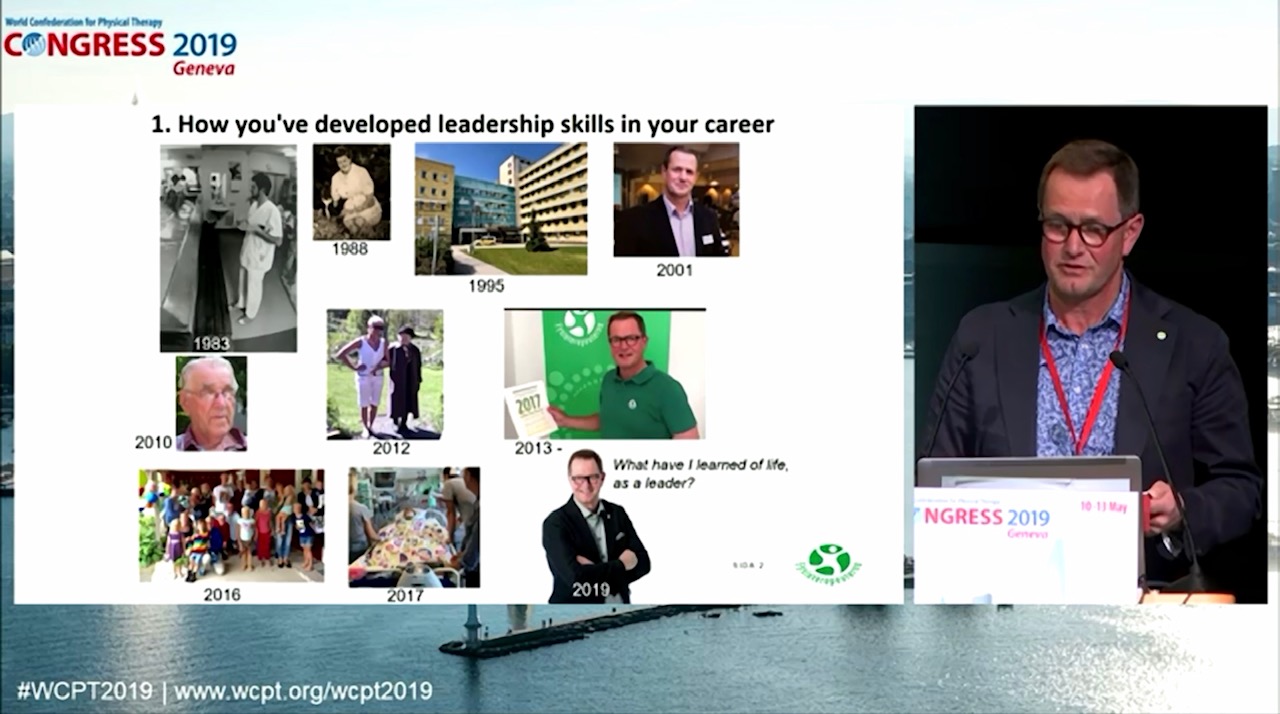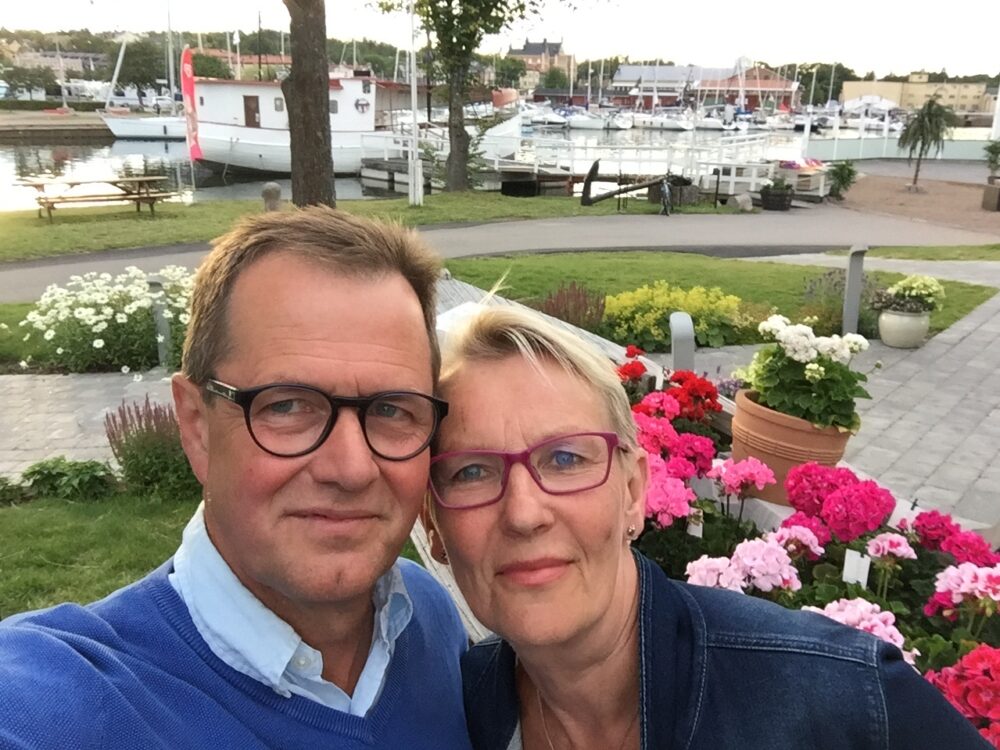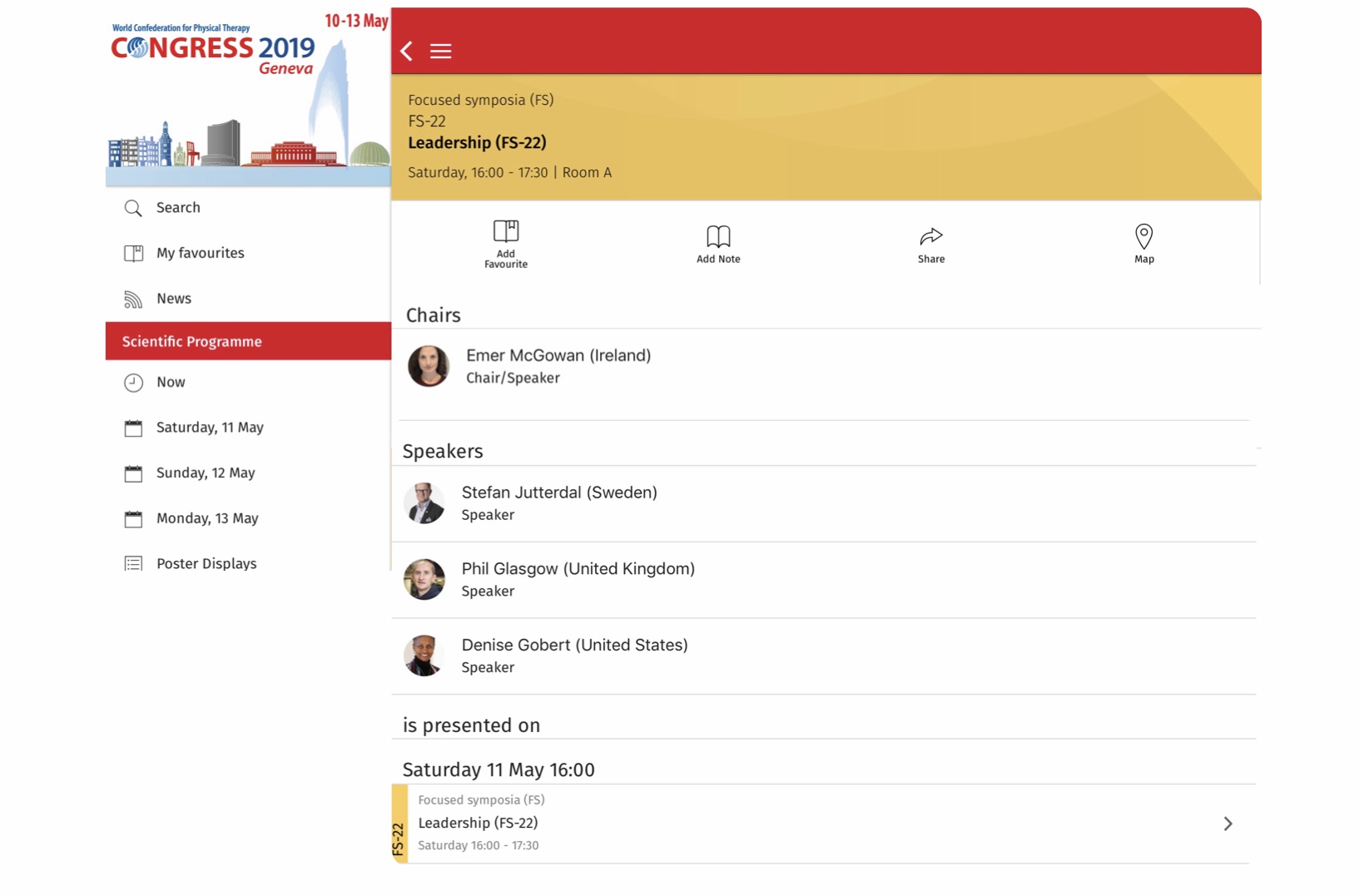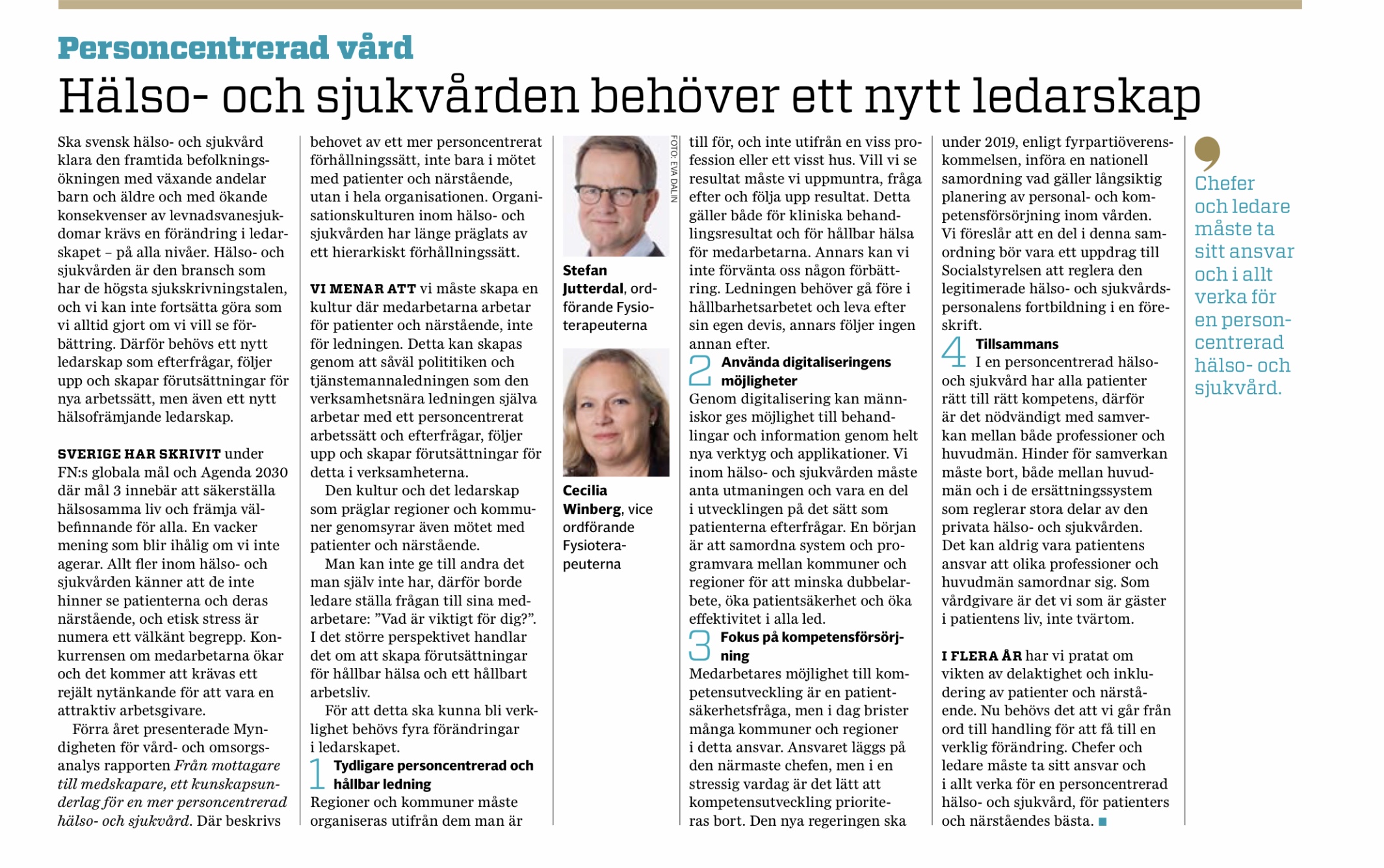This is my speech on the Leadership Symposium at WCPT Congress 2019 in Geneva May 11. You can watch the whole Leadership Symposium here and you can find my slides here. 
1. It´s great to be here, and it´s a huge challenge talking about leadership, both with you who are here in Geneva and you who follow thissymposium via the web.
2. I started as a leader after 3 years as a psysiotherapist, when I was 25 and I have worked as a leader since then, and today I´m 62.
When I was 32, I thought I had already learned most things that could be learned from life. I was the manager, had a wife and three children, car, villa and dog. What more could I learn from life? But then my mother died, I was devestated, I missed her so much. And I did understand that there was much more to learn from life.
After 15 years of clinical work including the assignment as head of the physiotherapy department, I was asked to become the hospital director, and was given the responsibility for 700 employees. It was 6 extremely challenging years, filled with new lessons and experiences.
I then got an assignment as chief of innovation and learning in the county council with responsibility for research and development and was trained in systematic improvement work in complex organizations. Now I started to understand the expression: “Every system is perfectly designed to get the results it gets”. If you want to achieve change, you must act in a new way, otherwise the result will be the same.
But although I had learned a lot in my clinical work as a physiotherapist, and as a leader at the highest level in county councils, I have learned most of all as a leader, when I have been a patient myself or a relative.
Me and my wife Annmargreth followed my father’s last four years in life, when he had a lot of trouble before he died. We also followed my wife’s aunt Karin, who became demented the last years of her life. Both I and Annmargreth have worked in healthcare throughout our professional life, one could say that we are a kind of experts. Yet it was SO hard to be able to influence my dad’s and Karin´s care. I learned the importance of always looking from the perspective of patients and their families.
I have learned to always ask the question What matters to you? This applies both to patients and their families in the clinical work and to your employees as a leader. If you dare to ask the question, you will get the answers.
My family, my wife, children and grandchildren, we are a great crowd, have also greatly affected my leadership. They have helped me to understand what really matters to me.
But most of all I have probably learned from when I became a patient myself 18 months ago. I got a cardiac arrest when we were out on a cycling holiday. My wife Annmargreth saved my life when she, together with others, started cardiovascular rescue and alarmed ambulance. I was dead for 20 minutes, but now I´m here again, I got the chance to live again, I work full time and I can work out still more then before the cardiac arrest. I am of course very very grateful and have learned even more about what is really important in life. And now I use this knowledgein my leadership as president of our association.
My question to all of you today is: What matters to you?
3. What are my experiences of leadership in the physiotherapy profession? I know there is incredible knowledge of the subject physiotherapy and treatment methods, but in my opinion less interest and knowledge of how complex organizations work. As physiotherapists we are often standing beside the influence of policy makers and stake holders, beside health care development, busy enough with our own professional development. I do believe that we need to tell the world the possibilities with physiotherapy and physical acitivity, we need to provide a movement!
4. I would like to tell you about two good examples from my time as a leader.
The first example is from my time as chief of innovation and learning at the County Council of Kalmar, where I started up and led a systematic improvement work called Every day a little bit better- the power of many. The improvement work started 12 years ago and it´s still working. Today the whole organisation are using storytelling, telling Every day– stories, about positive improvement work from the perspective of the patients and their families.
5. I had worked 20 years as a leader when I got an advice from my coach: You should probably attend this master’s course for a degree in improving health care. Honestly, I thought he was joking with me. What could I learn, I already had 20 years of experience in managing health care. After all, I started the education, and after only one month I do remember that I wrote a paper: How would I be able to cope with my job without this education? I now learned theories for what I had previously worked with as a leader. It made me safer and better as a leader and I began to understand the conditions for leading complex systems
All the student’s essays were summarized in a book from the university,and my essay was about attention. Attention is the currency of leadership.
6. I got theories and knowledge, not least from the IHI, Institute for Healthcare Improvement in Boston, where I learned the importance of building will and understanding, building improvement knowledge in the complex organization and also ensuring that improvements are executed.
7. These seven points are a summary of lots of actions carried out in the IHI-campaign: Save 100,000 lives. I had the opportunity to apply these seven points in the improvement work in Every day a little bit better– the power of many.
Set an overall goal. Build strategies in the leaders’ hearts. Channel the management’s attention to all levels of the organization for improvement work. It is very important what you as a leader are asking for. What is the most important question? Is about the financial results? Or are you asking for the Quality Score from the patient’s perspective? And it plays a crucial role that there is a team, where patients and their families are the most important and central persons.
8. By Maureen Bisognano, former CEO, IHI and o role model for me and many others, I learned the importance of that all change starts with myself as a leader. Leaders need to go ahead and as a leader you also need to transform your team, your organization and not least your profession. She also taught me the importance of Joy in work, and that you first must take care of yourself, before you take care of others. She said: You cannot give to others what you do not have yourself.
9. The second good example is about our improvement journey in the Swedish Association of Physiotherapists. When I was elected new president in 2013, our association had already worked hard for many years with how obvious physiotherapists’ efforts are for sustainable health and welfare. A really good job, but it was not as well known in society and by decision makers.
The new board set a new goal. We wanted to develop from a professional organisation that must chase to be listened to, into an organisation which is constantly in demand and obvious to the authorities. We took the strategy to our hearts, we focused on quality and patient safety work, we tried to be very transparent and active on social media and we started to build good relationships, we worked closely with patient organizations and other professional bodies, with decision makers and authorities and many others. It took us 4 years of hard work to achieve our goal at national level. Today we are in demand as a union and professional body and we are also perceived to have great influence on Swedish healthcare.
10. What were the key issues? Well, we started with a new perspective from the outside and inwards and we learned from others.
11. We conducted dialogues and discussions with patient representatives, decision makers at national and local level, other professions and of course with our own members. We photographed, used social media and showed our attention to our partners. We asked them for good advice, we listened and now they are carrying our message and our vision.
12. Based on the UN’s global goals and based on all the dialogues we have had, our congress adopted a new vision. “Everyone should be able to live healthy lives in movement” and we also adopted a foundation of values based on the equal value of all people and on the three words: in movement, trustworthy and together.
13. After the congress 2016, we conducted new dialogues with decision makers and patient representatives in what we called the physiotherapists’ health trip. We developed a program Three Boosts for Sweden and we spread this program on different influencing arenas.
14. As my fourth and final point, I want to give some good advice to you who are leaders or who are thinking of becoming leaders.
Always focus on Patient involvement and Joy in work. Choose your chief and get yourself a good mentor. Think and act sustainable and never forget to think outside the box, Be transparent and proactive in your communication, Try to understand the context and do remember that ”Attention is the currency of leadership” and ”It´s all about relationships”.
15. When I went to Singapore and WCPT Congress in 2015, we from the Swedish Association of Physiotherapists, brought a Pippi doll in ourluggage. We gave it to our incoming president Emma Stokes and gave her three words from Astrid Lindgren, the author of Pippi Longstocking, who came from my hometown Vimmerby. The three words were responsibility, courage and imagination.
16. At this World Congress in Geneva I bring the message from the 16-year-old climate activist from Sweden, Greta Thunberg. Greta Thunberg has received followers all over the world in a short time. She has a clear message and struggles together with millions of people around the planet to save the earth from climate disaster. We can learn a lot from Greta. She speaks with an inner commitment, with a clear and simple language and she describes with absolute honesty what needs to be changed. She is a young, big leader who lives her vision.
I met Greta a few weeks ago and, on the link, you can listen to her message to us regarding the climate in a short video. Her message is ”Sorry to disturb you – but it’s time to act”. She begs us and all adults and people in power to act for the climate, for the sake of our children and grandchildren.
In Sweden, some of our members have started a movement Physiotherapists for future, which every Friday shows Greta Thunberg their support in the fight for the climate #FridaysForFuture. Greta is onerole model for our work for a sustainable healthcare. Without sustainable development there will be no sustainable health and welfare. We do need a new more person centred and sustainable leadership.
17. Many years ago, I listened to Jim Easton, leader in healthcare in the UK. His advice for being a successful leader is similar to the way Greta Thunberg has:
As a leader I ought to give unlimited recognition of what´s already good, absolute honesty about what needs to be changed and use improvement as the way from today to tomorrow!
18. Having role models is very important as a leader, but also to realize that you as a leader yourself are a role model to others.
These three people has meant a lot to me as an improvement leader,
Helen Bevan, UK, a change agent in healthcare, talking about network and hierarchy,
Maureen Bisognano, US, a brilliant leader and former president on IHI, she has established the term What matters to you? globally, and Göran Henriks, chief of innovation and learning at Qulturum, Region Jönköping, Sweden, and also my coach for many years.
19. Finally, it is important to remember that the most important thing is how we as leaders act, not just what we say. It may be illustrated by my son Ludvig and my grandson Sixten. Thank you!
If you want to read more, this is an debate article THERE IS A NEED FOR A NEW LEADERSHIP IN HEALTHCARE


